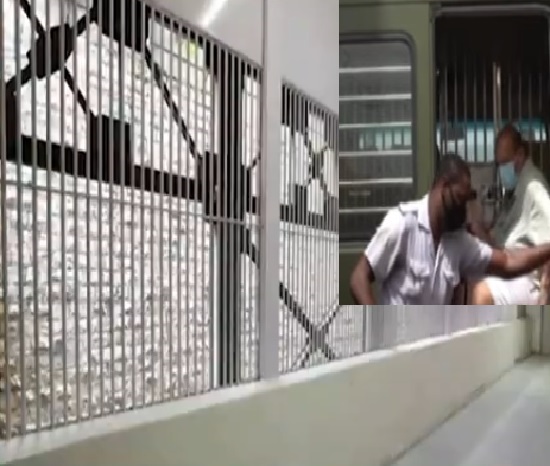Recent developments in the extradition of Mehul Choksi, the background of his case, and the preparations being made in India for his arrival.
Mehul Choksi is an Indian-born businessman, a diamond merchant and promoter of the jewellery group Gitanjali Gems. He is alleged to be a key accused in the massive bank fraud involving Punjab National Bank (PNB) — the case in which loans were obtained under false Letters of Undertaking (LoUs) and foreign letters of credit, amounting to around ₹13,000 crore (or more) in the Indian context.
His nephew, Nirav Modi, is also implicated in the same PNB fraud case and has been the subject of extradition proceedings in the UK.
Choksi reportedly fled India in January 2018, ahead of the full public exposure of the fraud allegations. After leaving India, he acquired citizenship of Antigua and Barbuda in 2017 and subsequently resided in the Caribbean, before eventually moving to Belgium.
India’s investigative agencies — notably the Central Bureau of Investigation (CBI) and the Enforcement Directorate (ED) — have actively pursued his extradition, asserting the gravity of the fraud, the flight-risk, and the need for trial in India.
In April 2025, Belgian authorities in the city of Antwerp arrested Mehul Choksi on India’s extradition request. The legal basis for his extradition rests on the India-Belgium treaty, which requires “dual criminality” (i.e., the offences must be crimes in both jurisdictions).
On 17 October 2025 a Belgian court in Antwerp formally approved his extradition, stating that his arrest by Belgian authorities at India’s request was valid. The court acknowledged the allegations and accepted India’s assurances regarding detention conditions and fairness of trial.
However — and importantly — Choksi still has the legal right to appeal this decision to a higher Belgian court (the Belgian Supreme Court) within typically 15 days of the judgment. Thus, while the ruling is a major breakthrough for India, his return is not immediate.
One of Choksi’s legal defences had been claims of poor prison/judicial conditions in India, alleged risk of political prosecution, and concerns about his rights if extradited. To counter those claims, India submitted detailed assurances to Belgian authorities about the detention conditions he would face in India. For example:
India has pledged to keep Choksi in Barrack No. 12 of the Arthur Road Jail in Mumbai, a facility described in Indian submissions to the Belgian court as meeting international-standard criteria (ventilation, personal hygiene, attached toilet, enough space per inmate) and in line with the European Committee for Prevention of Torture’s standards. India provided architectural drawings and photographs of the barrack, highlighting features like private washrooms, adequate ventilation and walking area, cross ventilation, tiled floors and walls for hygiene, CCTV etc.
The assurance also includes access to necessary medical treatment, access to newspapers/TV/video-conference, and that he won’t be placed in solitary confinement simply as a norm.
These assurances were evidently significant in the Belgian court’s evaluation of his human-rights claims, and helped tilt the ruling in India’s favour. With the Belgian court’s extradition order in place, the next steps include:
Waiting for the expiry of his appeal window (typically 15 days) or until the Belgian Supreme Court decision is delivered. Once all legal avenues in Belgium are exhausted or foregone, Belgium and India will coordinate the physical transfer of Choksi to Indian custody.
In India, the Arthur Road Jail authorities are reportedly preparing for his arrival. Documents show that a “swish” cell (Barrack 12) is reserved for him, and Indian officials have indicated readiness for his smooth transition.
India’s government is portraying this as a diplomatic + legal win, signalling that fugitives cannot indefinitely evade justice.
The extradition of Mehul Choksi – especially after years on the run – is symbolic and practical:
For India, it demonstrates that high-profile financial fugitives can be brought back across jurisdictions provided legal protocols are followed.
For Belgium and other European jurisdictions, it underscores that courts will weigh human rights concerns, prison conditions, fair-trial assurances when evaluating extradition requests.
For Choksi’s defence, although this is a setback, the appeal route still remains, and his lawyers may raise issues such as medical condition (he is reported to have cancer), alleged prior “kidnapping” from Antigua in 2021, or arguments about loss of Indian citizenship (he had claimed to have renounced Indian citizenship).
For the broader anti-fraud ecosystem, this may encourage faster action on future cross-border fugitives.
In summary: a Belgian court has approved the extradition of Mehul Choksi to India, India has secured assurances about his detention conditions (notably at Arthur Road Jail), and now the legal and logistical groundwork is being laid for his arrival. While this is a substantial breakthrough, the process is not yet complete, as Choksi retains the right to appeal.





